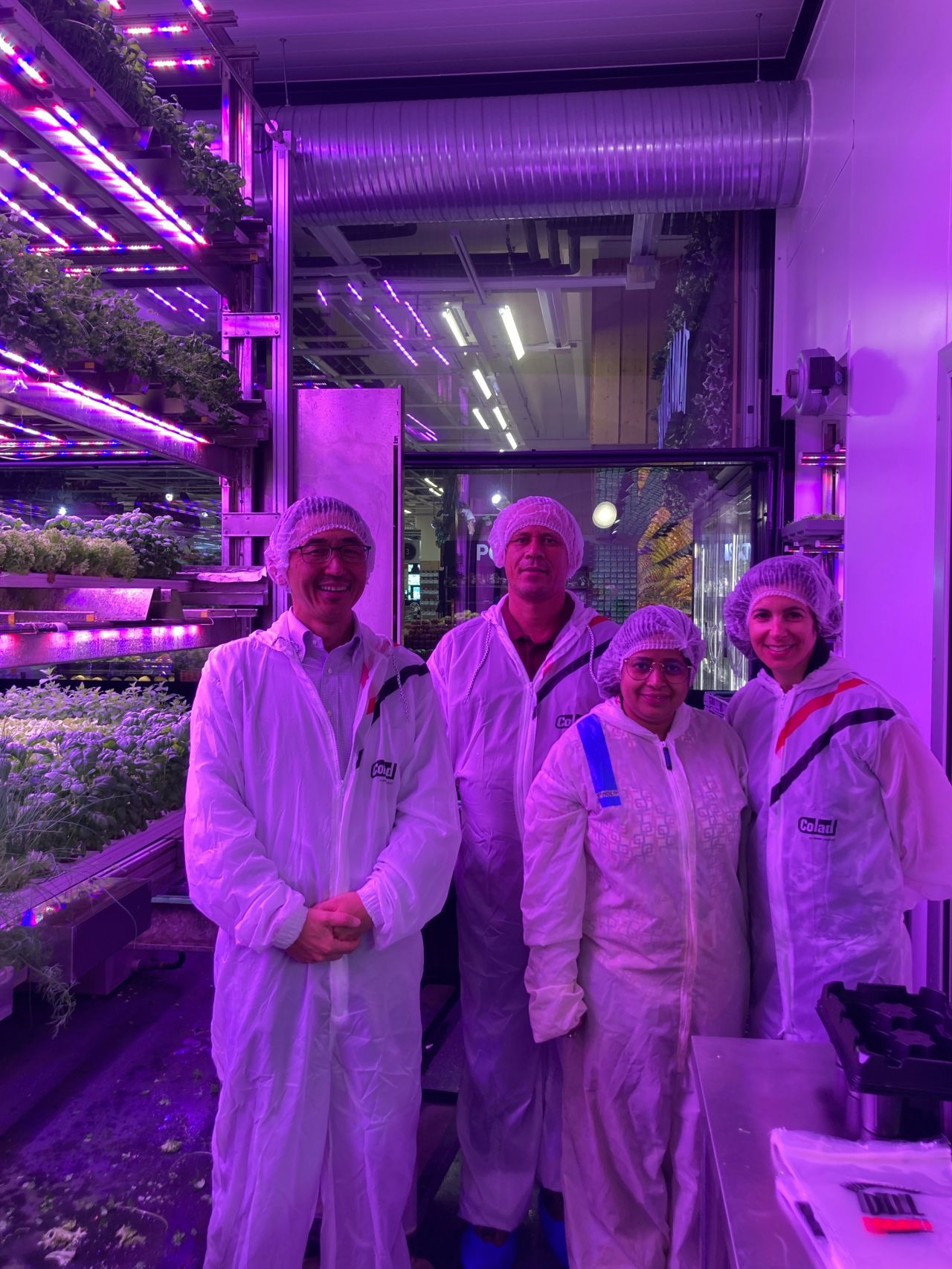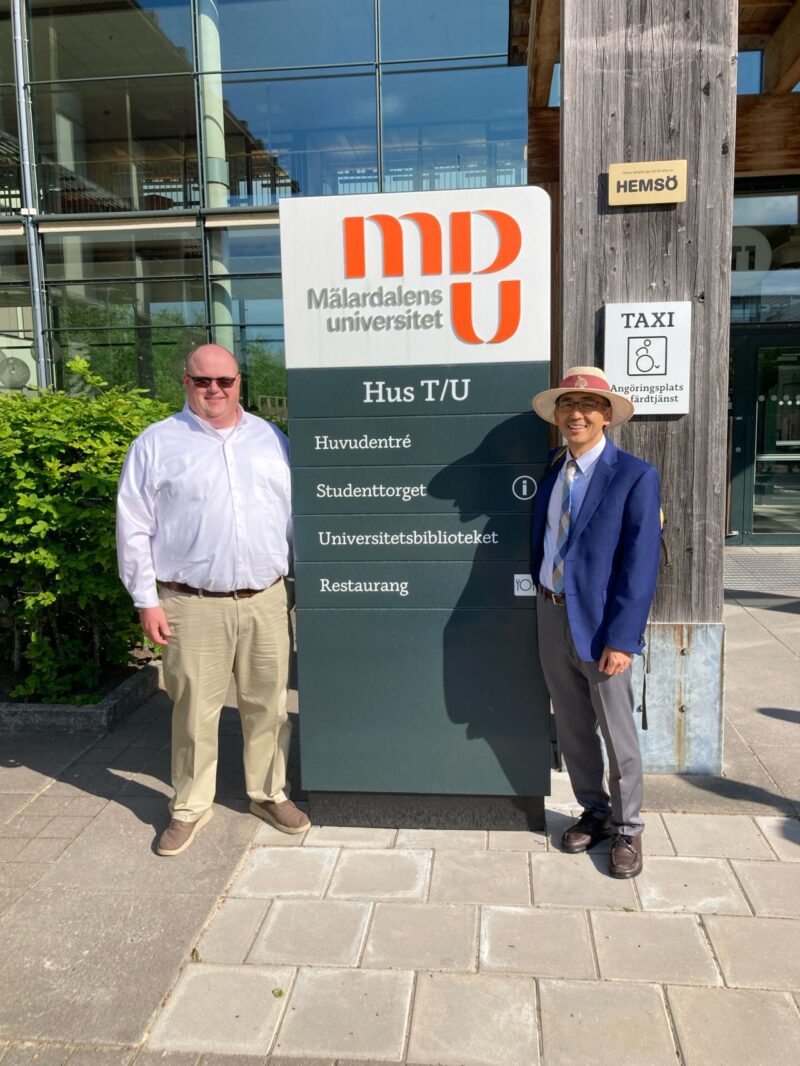In collaboration with Texas State University and the City of Wichita Falls
In the end of May, two representatives from Texas State University and the City of Wichita Falls, came to visit Mälardalens University in Sweden to gain insights in the Unity4Water project, discuss their roles and the anticipated impact of this partnership.
The Unity4Water project represents a confluence of academia, industry, and utilities aimed at exploring the potential of wastewater reuse in agriculture. Food security and nutrition, along with sustainable agriculture, are global challenges. Using wastewater for agriculture as a source of both water and nutrients is crucial for the future.
Visit from Texas
All the way from Texas State University came Keisuke Ikehata, an assistant professor in civil engineering, who is deeply involved in teaching and research on environmental engineering.
– My research group investigates a wide range of topics in water treatment and advanced wastewater treatment, including taste and odor, trace contaminant monitoring and removal, pathogen monitoring, removal and inactivation, desalination, and potable water reuse, says Ikehata.
The Texas part of the project will evaluate pilot plant operation using wastewater effluent. The City of Wichita Falls is a pioneer in potable reuse, having operated the third direct potable reuse system in the world, now converted to indirect potable reuse. Therefore, a key figure in this American partnership is Hunter Adams, a water purification superintendent for the City of Wichita Falls, who manages a comprehensive public water system. This includes multiple water treatment facilities, storage tanks, and pumping stations.
– I oversee operations, maintenance, and laboratory testing for the system, Adams explains, highlighting his extensive experience in water purification and system management.
This pilot plant aims to investigate the applicability of indirect potable reuse (IPR) system effluent for crop production, leveraging the city’s expertise in water reuse and is scheduled for the summer of 2025. It will build on indoor farming studies conducted at MDU.
The collaboration
The collaboration with MDU is pivotal for the project’s success.
– MDU brings together academics and industry experts that we could not have assembled on our own, says Adams.
Ikehata praises Dr. Monica Odlare’s research group at MDU for their extensive experience in indoor farming technologies and international research collaboration.
– The Unity4Water team is fully equipped and well-rounded, which is critical for the project’s success and impact, he notes.
Future plans
Both Ikehata and Adams are optimistic about the long-term impact of the Unity4Water project.
– This type of technology could be used in Texas and across the USA. Water reuse is the future, says Adams. Ikehata envisions a revolutionized supply chain for vegetables, with local supermarkets offering fresh, competitively priced produce while better utilizing local water resources.
Looking ahead, the project plans to recruit a student from Texas State University in Fall 2024, who will be trained in indoor farming systems at MDU and then manage the pilot plant operations in Wichita Falls in Summer 2025. This hands-on experience will be supported by the City’s Cypress Environmental Laboratory, ensuring rigorous laboratory testing and data collection.

Reflections on MDU Visit
Reflecting on their visit to MDU, both Ikehata and Adams express their enthusiasm.
– Our visit to MDU was an exciting opportunity to meet the research team and discuss plans for the project. MDU is a beautiful campus, and it was a pleasure to spend time with Dr. Odlare and others involved in the project, says Adams.
Ikehata adds:
– We thoroughly enjoyed our visit to MDU, Västerås, and Eskilstuna. It reminded me of my years in Canada with the similar scenery of aspens and birch trees. We truly appreciate the opportunity to visit and be part of this exciting project.
